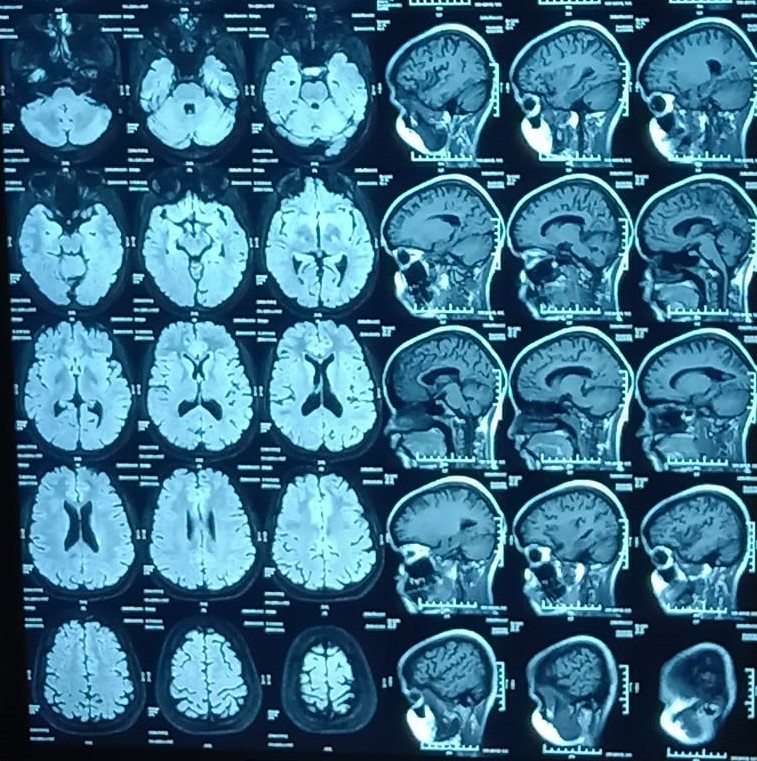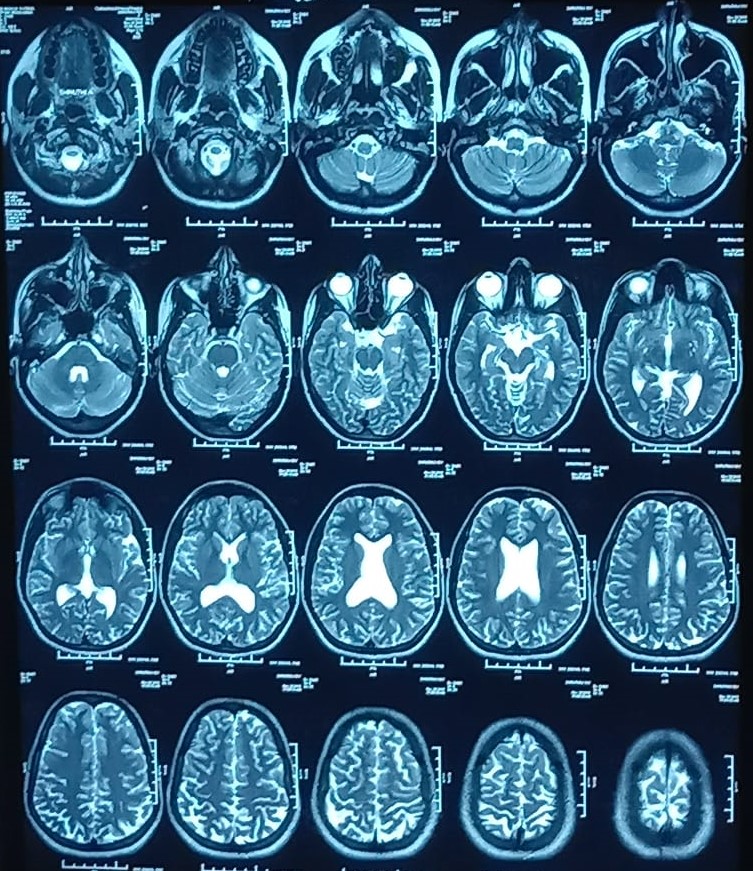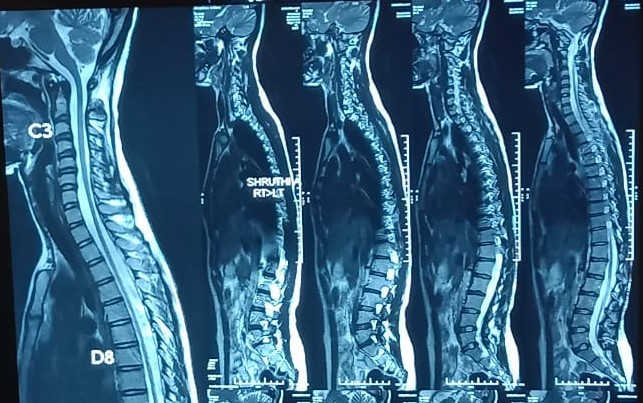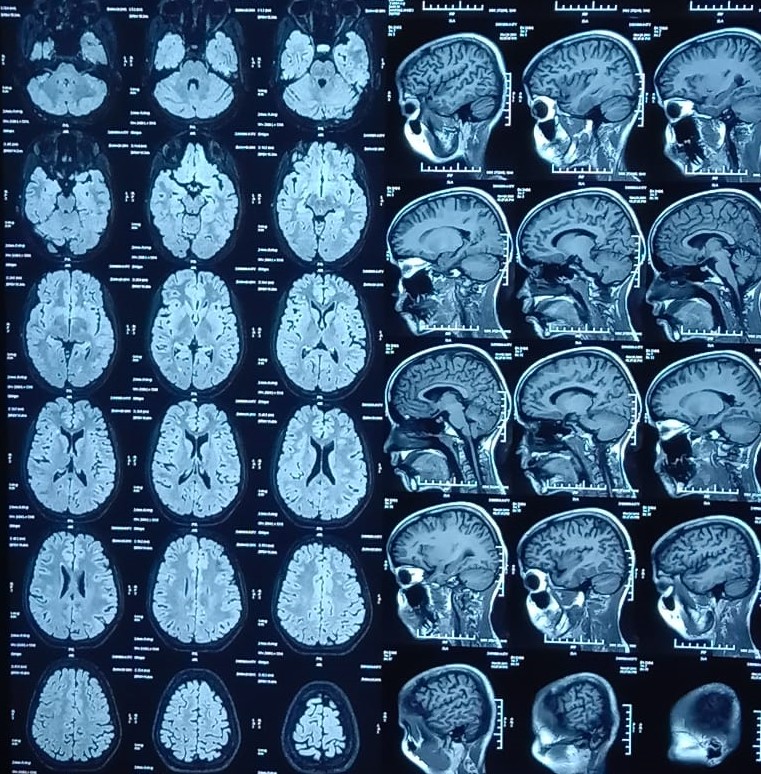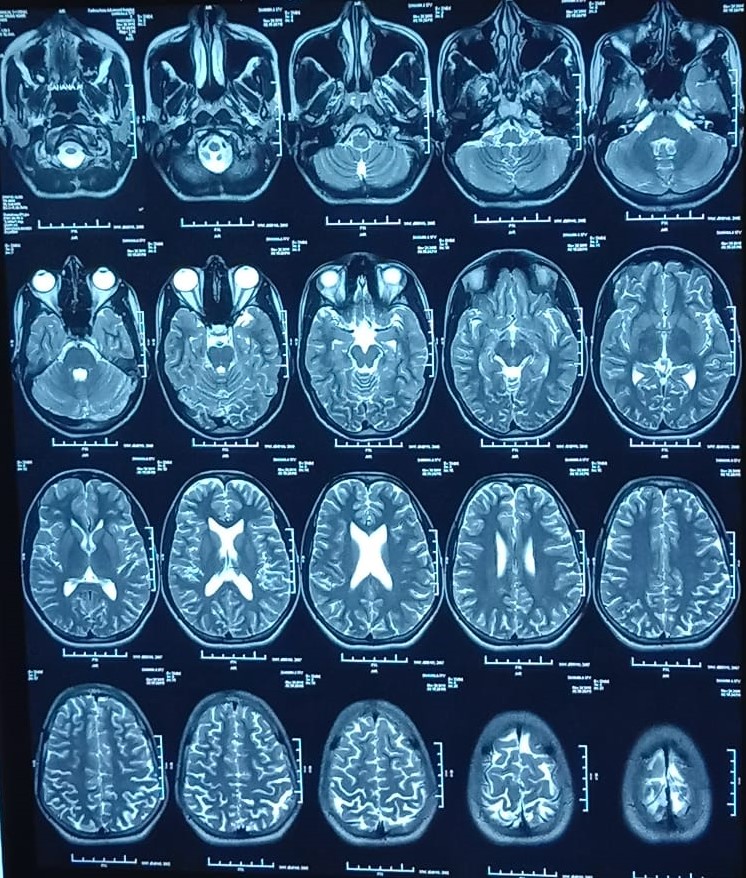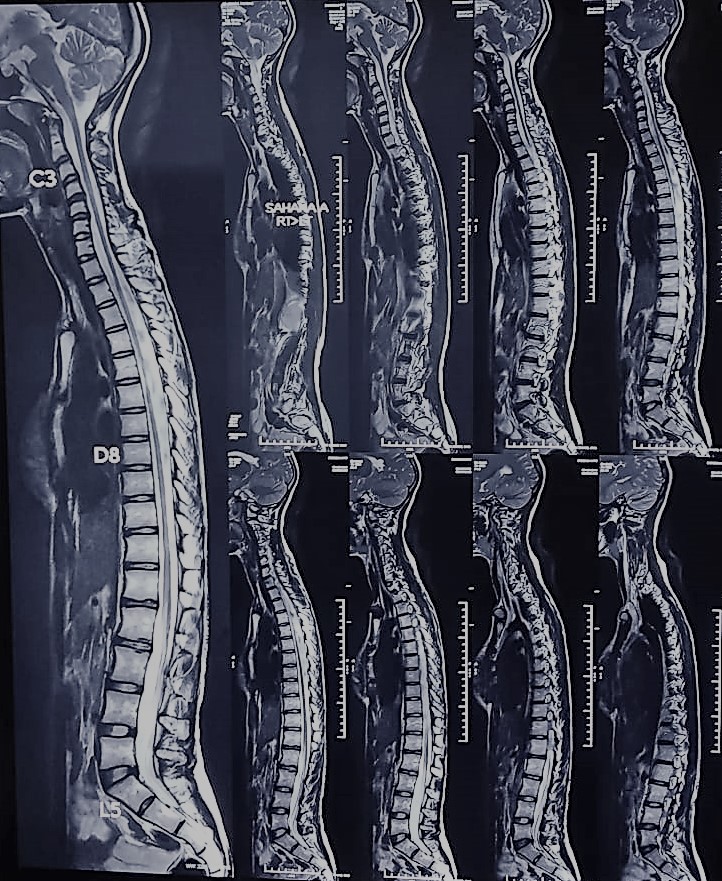Session Information
Date: Monday, September 23, 2019
Session Title: Ataxia
Session Time: 1:45pm-3:15pm
Location: Les Muses, Level 3
Objective: We describe the case of a family of 2 female siblings of Indian subcontinent with genetically proven SCA 42
Background: Spinocerebellar ataxia (SCA) are heterogeneous group of genetically inherited disorders. A mutation in the low voltage-gated calcium channel CACNA1G is reported as a causative gene of spinocerebellar ataxia 42.There is no genetically proven case of SCA 42 from the Indian subcontinent.Hereby, we report the case of a family of 2 female siblings,who presented with gradually progressive gait ataxia with cognitive impairment. .
Method: A family of 2 female siblings aged 20 and 18 year old respectively born out of 3rd degree consanguinity presented to us with history of slowly progressive gait ataxia The older sibling gave history of progressive gait ataxia with walking on toes of 4 years duration. she also reported of clumsiness of hands with abnormal twisting of left hand.The younger sibling reported of progressive gait ataxia of 3 years duration.Family members reported of decreased scholastic performance of both the siblings.There was no history of similar illness in the family.Examination revealed mild dysarthria ,hypotonia with bilateral incoordination of upper and lower limbs. MoCA scored 26/30 and 23/30 in the older and younger sibling respectively.The older sibling also had chorieform movement of fingers and left hand dystonia,gait was high stepping ataxic gait with toe walking.
Results: Both the siblings showed negative work up for TSH,Vit B12,HIV,VDRL,MRI Brain Plain and Spinal cord were normal(figure1(a,b,c),2(a,b,c).Nerve Conduction studies revealed sensory neuropathy in both lower limbs.Genetic Testing for FXTAS ,DRPLA ,SCA 1,2,3,4,6,7,10,12,14,17 were negative. Clinical Exome Sequencing was run on both the siblings which showed missense variant c.6077C>T (p.T2026M) in CACNA1G gene located on ch17 : 28701284 C>T suggestive of SCA 42
Conclusion: To our best knowledge,the mutation in CACNA1G gene has been described earlier in unrelated French,Japanese and Chinese families (1,2) and recently from three additional countries thus expanding the global prevalence of SCA 42(3).This is the first report of a family of genetically‑proven sporadic SCA 42 from the Indian subcontinent.Our patients presented with progressive gait ataxia with cerebellar signs,chorea and dystonia,impaired cognition,and sensory neuropathy,a possibility of SCA 42 should be considered
References: 1. Morino H, Matsuda Y, Muguruma K, et al. A mutation in the low voltage-gated calcium channel CACNA1G alters the physiologicalproperties of the channel, causing spinocerebellar ataxia. Mol Brain 2015;8:89. 2. Coutelier M, Blesneac I, Monteil A, et al. A recurrent mutation in CACNA1G alters Cav3.1 T-Type calcium-channel conduction and causes autosomal-dominant cerebellar ataxia. Am J Hum Genet 2015;97:726–37. 3. Kathie Ngo, Mamdouh Aker, Lauren E. Petty, et al. Expanding the global prevalence of spinocerebellar ataxia type 42. Neurol Genet 2018;4.
To cite this abstract in AMA style:
A. Mehta, M. Javali, P. R, K. Haskar, D. Gupta, P. Acharya, S. Srinivasa. Clinical and genetic heterogeneity in Indian subcontinent patients with Autosomal Dominant Spinocerebellar Ataxia 42 [abstract]. Mov Disord. 2019; 34 (suppl 2). https://www.mdsabstracts.org/abstract/clinical-and-genetic-heterogeneity-in-indian-subcontinent-patients-with-autosomal-dominant-spinocerebellar-ataxia-42/. Accessed February 5, 2026.« Back to 2019 International Congress
MDS Abstracts - https://www.mdsabstracts.org/abstract/clinical-and-genetic-heterogeneity-in-indian-subcontinent-patients-with-autosomal-dominant-spinocerebellar-ataxia-42/

